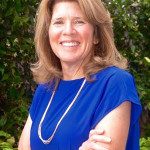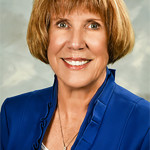CARLSBAD — Challengers campaigning on one issue makes a tough climb into office even more difficult.
So, the four challengers in the Carlsbad City Council race have expanded their platforms. The four — Bill Fowler, Brandon Rowley, Cori Schumacher (no relation to current councilman Michael Schumacher) and Ann Tanner — have said their reasons for stepping into the race is due to their opposition of Measure A back in February.
The general election is Nov. 8.
(This series was broken into two pieces and candidates appear in alphabetical order according to last name. Each candidate also answered a questionnaire, which can be accessed by clicking on their names in blue).
Incumbents Keith Blackburn and Lorraine Wood favored the Caruso Affiliated project.

Yet, the challengers have a tough road to navigate as Blackburn and Wood have significant war chests and incumbents generally do well in re-election bids.
Still, the fallout from the February special election is still in the minds of residents, as are a host of other issues facing the city such as the Village and Barrio Master Plan, land use at the Encina power plant, development and campaign contributions and term limits.
Campaign contributions and term limits have become a rallying cry for the challengers. They have taken aim at the incumbents’ sizable donations, although Schumacher and Tanner each have built rather large accounts.
Those two, however, praise the fact they have built large war chests through grass root efforts and individual donors, not from Political Action Committees (PACs), developers or “dark money,” which is from independent expenditures where a candidate has no affiliation and is difficult to trace.
The difference, the two challengers said, is the money flowing in from outside and special interests. In addition, Schumacher and Tanner said a limit on donations “levels the playing field,” allowing for a more diverse group of residents to run for office.
They said one of the toughest issues for challengers is fundraising.
Schumacher said funds should be limited between $1,000 to $4,200, while Tanner said a max of $2,500 would be appropriate. Tanner also said a test period could be run on campaign contribution limits for a 10 to 12-year period and then compare the results.

As for term limits, Tanner said she is in favor, but between 12 to 20 years. Her experience on the Carlsbad Unified School District School Board (2010-14) changed her thinking, saying those on the board with years of service were of great value to newcomers.
The learning curve is so steep, with dozens of issues taking at least one year to become familiar with is why Tanner said it would be prudent to extend limits between three and five terms.
“Term limits was an interesting thing for me,” she explained. “When you are new to a situation like that, it was very helpful to have people who had institutional knowledge. It changed my perspective on term limits. It’s a city council election and the amount of money that has to be raised seems really hard to believe sometimes.”
Wood, though, is not in favor of limits and is seeking a second term, although she said it is an idea worth researching. Somewhat like Tanner, Wood said experience on the council goes a long way in helping the city operate and making the best possible decisions.
Wood also said learning the about issues, countless acronyms, structure and function of each department, committee assignments and those issues are a lot to take in for a first-term council person.
“When you put a term limit on someone … a person like Buddy (Lewis) and Ann (Kulchin), where they were elected year after year and they had good contenders, but it was the people’s desire,” Wood explained. “It took me about four years for me to figure this job out, and remember, I was a city employee (city clerk). It takes awhile to figure out what people are talking about. I don’t think we should have term limits just to have term limits.
“Raising money is difficult,” Wood added. “Limits may be something we want to look at in the future. There is this group called independent expenditures … I don’t have anything to say about it. They don’t document who gives what to them. When you put expenditure limits, it’s always overshadowed by that. I want people to know where the money is coming from.”
Schumacher, one of the most prominent “No on A” faces, said she began building a more diverse platform months ago. She is a proponent of smart growth, saying the city must be active in filling its open office space before starting new developments.
Also, she said engaging developers early in the process and encouraging them to interact with nearby residents will bring a transparent and trustworthy image to the city. She noted the project at Ponto, spearheaded by Shopoff Investments, as an example of community engagement by a developer.

Tanner and Wood, meanwhile, also touted “smart” growth within the city.
Tanner said smart growth applies to several areas, but highlighted the Village and Barrio Master Plan. She said the small-town and beach feel are important to those residents living in and visiting those neighborhoods.
“People like how Carlsbad is this laid-back community,” Tanner added. “We don’t want to be Anaheim with these four- and five-story buildings. The Village-Barrio was really a disaster. If you are going to do development, you don’t have to reinvent the wheel. I think we should keep it (height limits) at 33 feet.”
Wood, however, said one of the last “big” residential projects is Robertson Ranch, which is expected to be completed within the next several months. There is another potential project near Poinsettia where 200 to 240 homes will be constructed, but noted how the city integrates open space with its developments.
“These are some of things that are very nice and people enjoy them,” Wood said. “I like a balance. Carlsbad is sort of clustered like a European city. We have growth management and growth limits. We want to discuss all the developments with the developers … and maximize the quality of life. Developers pay for everything here in Carlsbad. Balance is so key to helping it.”
And while each issue is important to the city, and the candidates agreed, they do have their personal passions.
Wood is a strong advocate for education, creating programs such as the Citizens Academy and the Carlsbad Student Leader Academy (CSLA), which began this fall for students. Schumacher said she wants to bring more clean and green technology businesses to the city, while Tanner said the city’s $130 million in unfunded pension liability is her top concern.
“There was a program called City Stuff, for little guys (kids), who learned about the city,” Wood said of the inspiration for the CSLA. “It really challenges you, personally, about leadership. It goes beyond the superficial topics and goes into real identity and who you are. There is somewhere between were we can all come together and learn about the city and ourselves. We are all continuously learning, and as a city that was always a goal.”
Schumacher said the clean and green tech industry is an $830 million industry, which the city could use to “capture” graduating students from local colleges and universities. She also noted it’s a long-term look at the future of the city.
“This idea of moving forward on clean and green tech to strengthen our economy is really the place that I invested a lot of my time to be a candidate that is simply more than oppositional,” Schumacher said.
Tanner also touted her experience with large budgets, as the CUSD worked with about $100 million per year.
“The Stanford Institute of Economic Policy says the range for Carlsbad is $130 million to $450 million,” she added. “That’s a train wreck.”
In addition, she said her time with the district also showed her how to interact with the community, noting the construction of Sage Creek High School and lawsuits associated with its California Environmental Quality Act application.
She said numerous groups, including the city filed suit, so the school board met with each entity to iron out the problems. All but the city (which has since been settled) dropped their lawsuits, but the sting from the city suing the district left a mark with Tanner.
“We had to stop the construction and we had look at our redoing our CEQA report, which we did by sitting down with some of the groups,” she said. “The city never did … because they wanted us to pay for this road that runs past the high school. We had to settle with them and that was during the Great Recession. When I started reading about Caruso and how he got a pass with CEQA, I said, ‘Wait a minute.’ So it was trust.”
Yet another issue the challengers have hammered the incumbents on has been transparency, or a perceived lack thereof.
Both challengers noted residents don’t like the “feeling” of being lied to or, at least, not having trust in the council and its decisions.
“My second motivation for running is to return to some trust to this city council,” Tanner said. “It takes awhile to get it back. The only way you can gauge whether change is happening is by behavior.”
Schumacher and Tanner point to Measure A as the prime example of how the city appeared to deal with Caruso Affiliated in a cloak-and-dagger way, although Wood said it’s a matter of perception.
“They are all really nice people,” Wood said of the challengers. “They have a perspective, but don’t have my perspective. I live in a world where three of us (current council members) can’t be in the same room. I think we are very careful about that. There are things we discuss in private, such as litigation against us, if we are planning a real estate deal, the terms of real estate conditions or purchasing … personnel issues.
“I understand the Brown Act,” Wood continued. “To somebody on the outside, it may appear that we have an advantage or that we may not follow that structure. To me, I think we do a fine job of that. I understand Prop A is an emotional issue. I think it’s just perspective. They are all good people and I don’t have an axe to grind, it’s just how they feel.”
The two challengers said they would create a website to track development from beginning to end and encourage community input throughout the way.
Schumacher said the city must change its dialogue with residents, noting when a public workshop is announced, it is a one-way street as plan have already been in the works for months or years.
So, one idea she said is to create community-planning partnerships, although Schumacher said the city is beginning to go down this path, specifically with the Shopoff development at Ponto and due to the blowback from Measure A.
She also noted the ongoing battle of the McClellan-Palomar Airport expansion and the ordinance to allow a vote, especially when a new terminal was added several years ago.
“I would like to see the city itself facilitate these community-planning partnerships rather than sort of saying developers do it yourself,” Schumacher said. “I think what we are seeing is developers who starting to make an effort because their projects, their finances and their investments are at stake because of the community awareness.”

2 comments
Keith Blackburn is one of the most honest people you would ever want to meet Don and he has always been an asset to our city. Keith Blackburn donates his entire councilman salary to local charities.I guess you forgot to mention that.
Vote for Keith Blackburn. He has a proven record. He doesn’t do the job for money or influence. He cares about our community and proves it every day.
Cori demonstrated real integrity by RETURNING campaign contributions. Have Blackburn or Wood EVER done that?
Comments are closed.